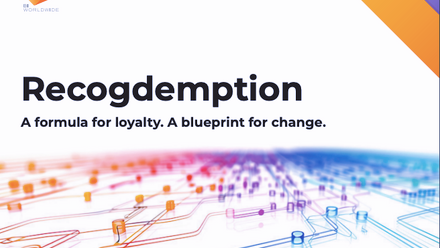3 ways a work culture could undermine a wellbeing strategy

It’s not as easy as it might sound, though. Many employers adopt a ‘fire and forget’ approach, implementing a package and never speaking of it again. Others go too far in the other direction, and gratingly insist on overwhelming their people with how much they care.
There’s a delicate balance to be struck. Embracing a positive strategy, while fine-tuning the details, isn’t the simplest process. But here, we outline a few ways your work culture and environment could be doing more harm than good for your people’s wellbeing—along with ways you can lessen that impact.
Intrusion
Work/life separation is incredibly important. For the majority, a clear line needs to be drawn between their job and their spare time. A good wellbeing strategy emphasises this—ensuring people take the time off they’re entitled to, giving flexibility in working hours and making sure work emails are sent and read at work.
But more and more employers are providing benefits that dive a little deeper into people’s lives. Insurance policies, loyalty cards and exercise tracking equipment are fairly common. Each of these, though, gathers a lot of data, and not everyone wants to share that data. That free exercise tracker can build a huge profile in use, with sensitive data including the wearer’s address easy to find.
Make sure you make it clear that your programme has data security embedded in from the beginning—and provide an easy opt-out for anyone wary. It’s great that you want to give everyone GPS-connected step-tracker, but be aware that some people might think that a bit intrusive.
Micromanaging
You’ve put together a set of 10-step programmes for success covering a range of subjects. Mental health, de-stressing, even how to keep the office tidy. Sounds great—and positive.
But sometimes, these things can get a little bit carried away, and the people put in place to deliver these programmes can, too. It’s good to have a healthy respect for people’s autonomy.
Be careful to phrase and design these things in the friendliest way possible. Remember, with a wellbeing programme, you're not telling people what to do—you’re not ordering them to feel better. You’re using evidence-based methods to improve the lives of people who want to help themselves. And the last way to do that is to become interfering. Hands-off is the best approach.
Intent
There’s no escaping it—people are cynical. And some people, when they hear you talking about making them fitter and happier, only hear ‘more productive’.
This can be tricky. Of course you want them to be more productive—that’s how business works—and ensuring that people are more content and satisfied, both at work and home, is one way to go about that.
Put simply, you need to be sincere. Walk the walk (as we said earlier.) Nothing you do for your wellbeing programme should be shrouded in corporate language. You should certainly avoid phrases like ‘getting back to work quickly’ or ‘removing barriers to productivity’.
When your wellbeing programme exists as a genuine means of helping people be happier without the implication that you expect that happiness to be repaid by harder work, you’ll find that you’re rewarded with harder work by default. Because content people are far more likely to give it their all, especially in an environment—and a culture—that values them over their metrics.
This article is provided by Health Assured.
Supplied by REBA Associate Member, Health Assured
Health Assured is the UK and Ireland's most trusted health and wellbeing network.







